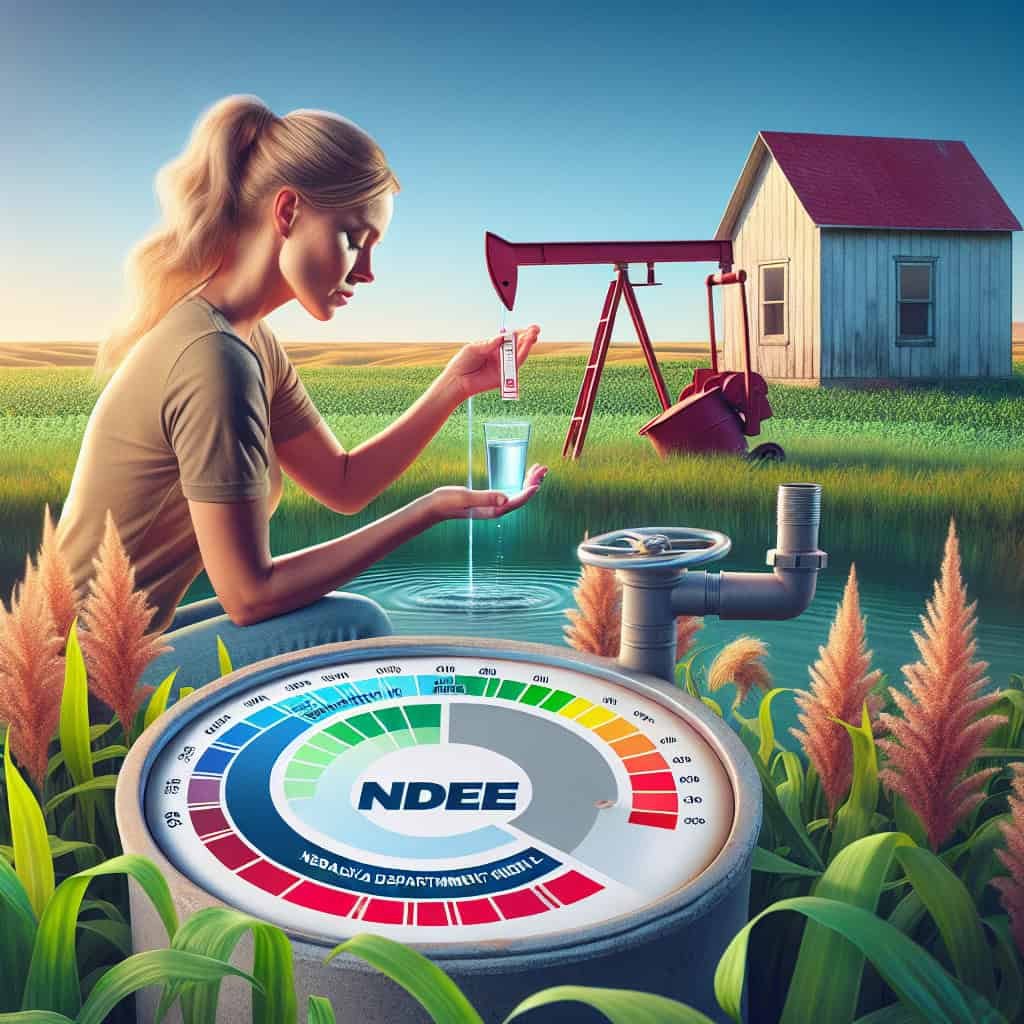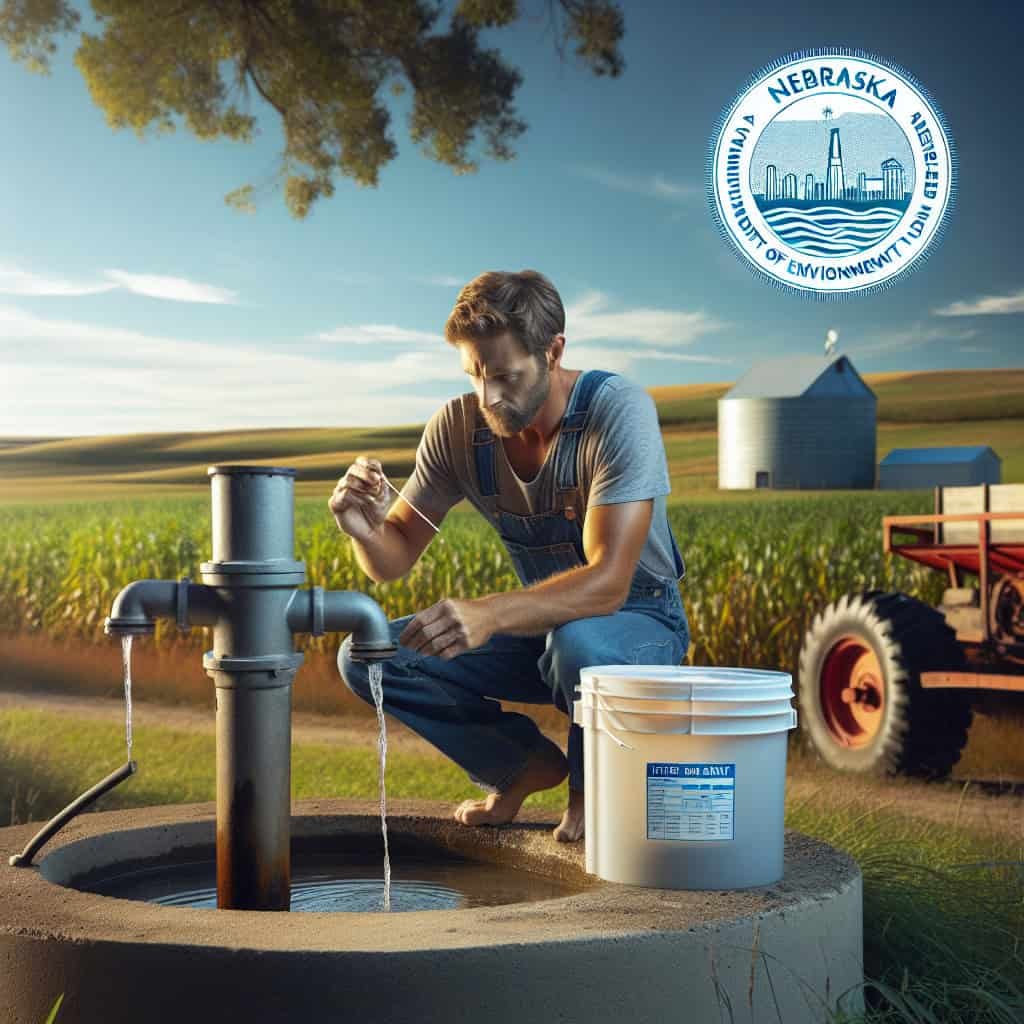Looking to test the quality of the water in your private drinking water well? Look no further, as NDEE is offering free nitrate sample kits for private drinking water wells. With increasing concerns about water contamination, it’s important to ensure that your water is safe for consumption. These sample kits provide an easy and convenient way to test for nitrates, a common contaminant in well water. Take advantage of this opportunity to ensure the quality and safety of your drinking water.
NDEE offering free nitrate sample kits for private drinking water wells
Overview of NDEE’s initiative
The Nebraska Department of Environment and Energy (NDEE) has launched an initiative to provide free nitrate sample kits for private drinking water wells. The goal of this initiative is to raise awareness about nitrate contamination in private wells and to encourage well owners to regularly test their water for nitrate levels. By offering free sample kits, the NDEE aims to make it easier for well owners to access testing services and take necessary steps to protect their health and the environment.
Importance of testing private drinking water wells
Private drinking water wells are a common source of water for many households in rural areas. It is essential to regularly test the water from these wells to ensure its safety for consumption. Unlike public water supplies, private wells are not subject to routine testing and regulation. This means that contamination can go unnoticed unless individual owners take the responsibility to monitor the quality of their well water. Regular testing can help identify potential issues early and prevent health risks associated with contaminated water.

How nitrate contamination can occur in wells
Nitrate contamination in wells can occur due to various factors. One of the most common sources of nitrate in groundwater is agricultural practices, such as the use of fertilizers and pesticides. These chemicals can seep into the soil and eventually reach the groundwater, contaminating wells. Industrial activities, such as manufacturing and waste disposal, can also contribute to nitrate contamination. Additionally, climate change can exacerbate the problem by altering precipitation patterns and increasing the frequency of extreme weather events, which can lead to increased runoff of nitrate-containing substances into water sources.
Understanding the risks of nitrate contamination
Nitrate contamination in drinking water can pose serious risks to human health. High levels of nitrate in the water can lead to a condition called methemoglobinemia, or “blue baby syndrome,” in infants. This condition reduces the blood’s ability to carry oxygen, which can be life-threatening. Long-term exposure to high levels of nitrate has also been linked to various health issues in adults, including increased risk of cancer, thyroid problems, and reproductive issues. It is crucial to understand the risks associated with nitrate contamination and take necessary steps to mitigate them.

Impact of nitrate contamination on human health
The impact of nitrate contamination on human health can be significant. Acute exposure to high levels of nitrate can cause methemoglobinemia, particularly in infants under six months of age. This condition can lead to symptoms such as shortness of breath, bluish discoloration of the skin, and lethargy. Chronic exposure to nitrate has been associated with an increased risk of certain types of cancer, such as bladder and ovarian cancer. Pregnant women and their developing fetuses are also at higher risk of adverse effects from nitrate exposure. It is essential to address nitrate contamination to safeguard public health.
The role of NDEE in monitoring water quality
The NDEE plays a crucial role in monitoring the quality of water in Nebraska, including private wells. They have established monitoring and testing protocols to assess the levels of nitrate and other contaminants in drinking water sources. The data collected by the NDEE helps identify areas with high nitrate concentrations and informs water management strategies. The NDEE also collaborates with local health departments and other agencies to ensure a comprehensive approach to water quality monitoring and protection.

How to request a free nitrate sample kit
Well owners who are interested in testing their water for nitrate levels can request a free sample kit from the NDEE. To be eligible for a sample kit, individuals must own a private drinking water well in Nebraska. The kits are available on a first-come, first-served basis and can be requested by contacting the NDEE directly. The NDEE will provide instructions on how to collect a water sample and submit it for analysis.
Instructions for collecting a water sample
To collect a representative water sample, follow these step-by-step instructions:
- Start by selecting a clean sampling container or a provided sample bottle.
- Thoroughly clean and sanitize the container to avoid any contamination.
- Choose a cold-water tap that is closest to the well’s pressure tank or water treatment system.
- Let the water run for a few minutes to flush out stagnant water and obtain a fresh sample.
- Fill the container up to the designated fill line, ensuring not to overfill or underfill the bottle.
- Place the lid securely on the container to prevent any leakage.
- Label the container with the required information, including the name, address, and date.
- Keep the sample chilled until it can be transported to the designated laboratory for analysis.

Submitting the water sample for analysis
After collecting the water sample, it is crucial to submit it for analysis as soon as possible to obtain accurate results. The NDEE will provide instructions on where to send the sample for analysis. It is recommended to follow the instructions precisely to ensure the correct analysis is conducted. Proper packaging and transport of the water sample are essential to avoid any contamination or damage during transit.
Interpreting the results and next steps
Once the water sample has been analyzed, the NDEE will provide the results to the well owner. It is important to understand the nitrate levels in the water and compare them to safe drinking water standards and guidelines. If the nitrate levels exceed the safe limits, the well owner should take appropriate actions to address the issue. This may include installing a treatment system, seeking professional advice, or considering an alternative drinking water source. The NDEE can provide support and resources to well owners to help them navigate through the next steps and ensure the safety of their drinking water.
By offering free nitrate sample kits for private drinking water wells, the NDEE aims to empower well owners to take control of their water quality and protect their health. Regular testing and awareness of nitrate contamination are crucial steps towards ensuring clean and safe drinking water for all. It is essential for well owners to take advantage of this initiative and make use of the resources available to them. Together, we can create a healthier and safer environment for everyone.


